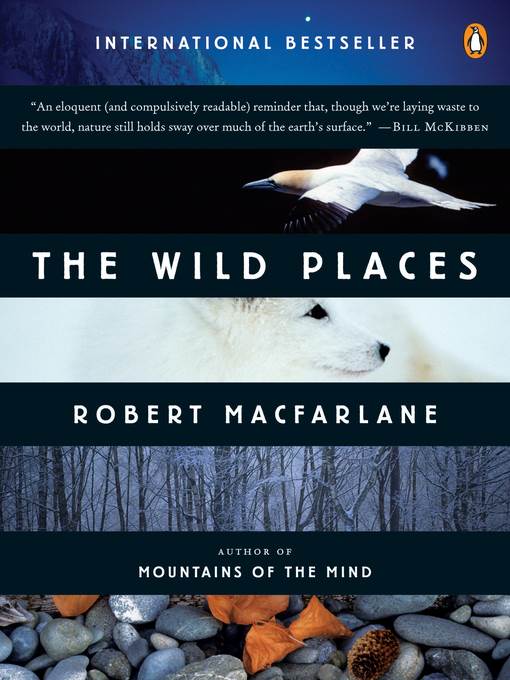
The Wild Places
کتاب های مرتبط
- اطلاعات
- نقد و بررسی
- دیدگاه کاربران
نقد و بررسی

Starred review from April 7, 2008
In this eloquent travelogue, Macfarlane (Mountains of the Mind
) explores the last undomesticated landscapes in Britain and Ireland in a narration that blends history, memoir and meditation. Macfarlane journeys to salt marshes, mountaintops, forests, beaches, constantly expanding and refining his understanding of wildness. Walking a Lake District ridge at night, he observes that “with the stars falling plainly far above, it seemed to me that our estrangement from the dark was a great and serious loss.†Crossing a moor, he finds its vastness and “resistance to straight lines of progress†analogous to the inability of mere words to convey a landscape's variety and immensity. Nonetheless, Macfarlane's language is as surprising and precise as his environments, with such evocative phrases as “heat jellying the air,†“ice lidded the puddles†and descriptions of birds that “gild†a tree and the sky as “a steady tall blue.†His striking prose not only evokes each locale's physicality in sensuous, deliberate detail, it glows with a reverence for nature in general and takes the reader on both a geographical and a philosophical journey, as mind-expanding as any of his wild places.

Starred review from July 15, 2008
Award-winning author Macfarlane (fellow, Emmanuel Coll., Cambridge, UK; "Mountains of the Mind: A History of a Fascination") spent a year wandering through remote regions of Britain and Ireland seeking out whatever wild places remain before they vanish. His travels began on the tiny Welsh island of Ynys Enlli and continued to such places as a strange and beautiful valley on the Isle of Skye, the moors and mountains of the Scottish Highlands, and the shifting salt marshes of southern England. In this winner of the 2007 Boardman Tasker Prize, he observes that natural and human history intermingle in even the remotest locales and recounts the often tragic historical events of the places he visits, such as the "clearances" in Scotland, the Irish Potato Famine, and Oliver Cromwell's purging of Catholics. He gradually realizes that wildness is present in the vitality and fecundity of nature, that it is persistent everywhere. The use of British terms possibly unfamiliar to American readers is a minor inconvenience in what is otherwise a beautifully written and well-researched work. Highly recommended for travel and natural history collections. (Map not seen.)Maureen J. Delaney-Lehman, Lake Superior State Univ. Lib., Sault Ste. Marie, MI
Copyright 2008 Library Journal, LLC Used with permission.

























دیدگاه کاربران